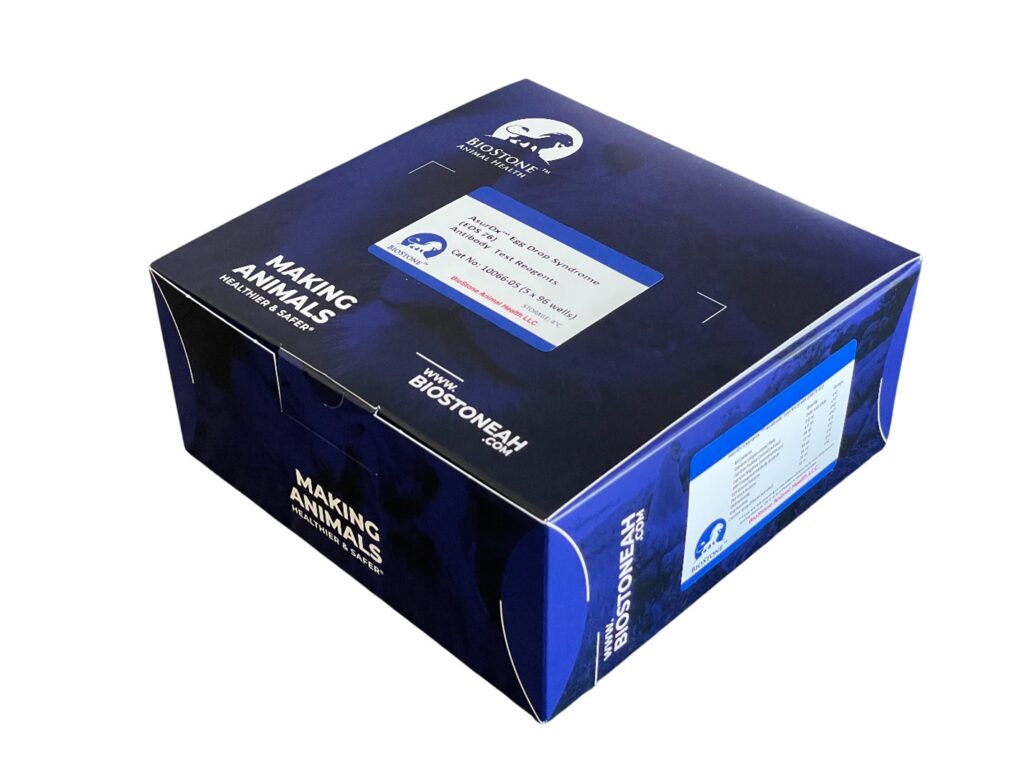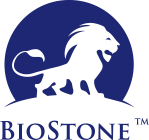AsurDx™ Egg Drop Syndrome (EDS 76) Antibody Test
The AsurDxTM Egg Drop Syndrome (EDS 76) Antibody Test Kit is designed for the detection of antibodies against Egg Drop Syndrome (EDS 76) virus in chicken serum and plasma.

Feature
- Detects EDS 76 virus antibodies of the IgG in chicken serum/plasma;
- Procedures last less than 75 minutes;
- Provides a simple, rapid, sensitive and cost-effective enzyme-based immunoassay (ELISA) screening method
*Availability/Distribution: Product is designed and developed by BioStone US Texas headquarter and manufactured/assembled by BioStone oversea subsidiaries or partners. Currently, the product is only available outside of the USA. Regulatory requirements vary by oversea countries; the product may not be available in your geographic area.
Specification
| Method | Competitive ELISA |
| Coated Antigen | EDS 76 antigen-coated Plate |
| Incubation Time | 75 minutes |
| Storage | At least 12 months |
| Specificity | EDS 76 virus chicken IgG antibodies |
Order Information
| Catalog Number | 10066-02 | 10066-05 |
| Plates | 2 plates | 5 plates |
| Reactions | 192 | 480 |
| Plate Format | 12 X 8-well strips | 12 X 8-well strips |
About Disease
Egg Drop Syndrome (EDS 76) virus is caused by duck adenovirus A (adenovirus group III) and was first described in laying hens in 1976. The adenovirus is a member of the genus Atadenovirus and family Adenoviridae. EDS 76 affects chickens and quail. Ducks and geese seem to be natural hosts of the virus. The virus is transmitted vertically by eggs. Droppings also contain the virus that can be horizontally transmitted by the oral route. Infected wild birds can be a contamination source for poultry.
The disease is characterized by drops in egg production and increased incidence of abnormal eggs. Birds remain generally healthy. Egg production is usually reduced by from 10% to 40%. The fall in production can be rapid, and the drop in egg production usually lasts from 4 to 10 weeks. The first sign is loss of shell pigments. This loss of color is followed by thin, soft, rough and granular shell and shell-less eggs.
